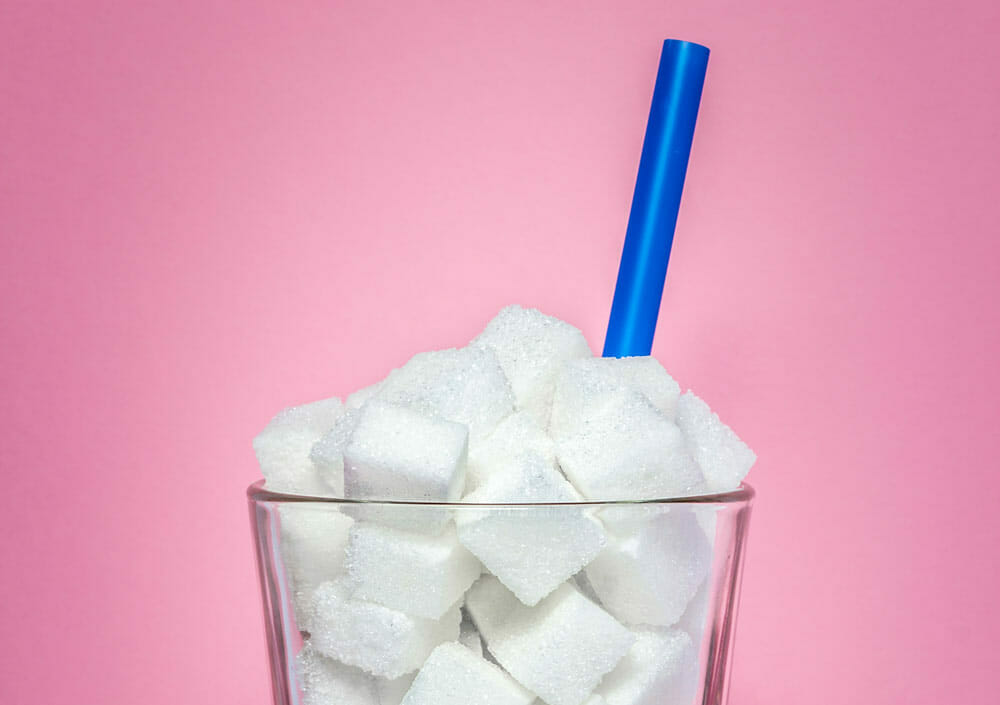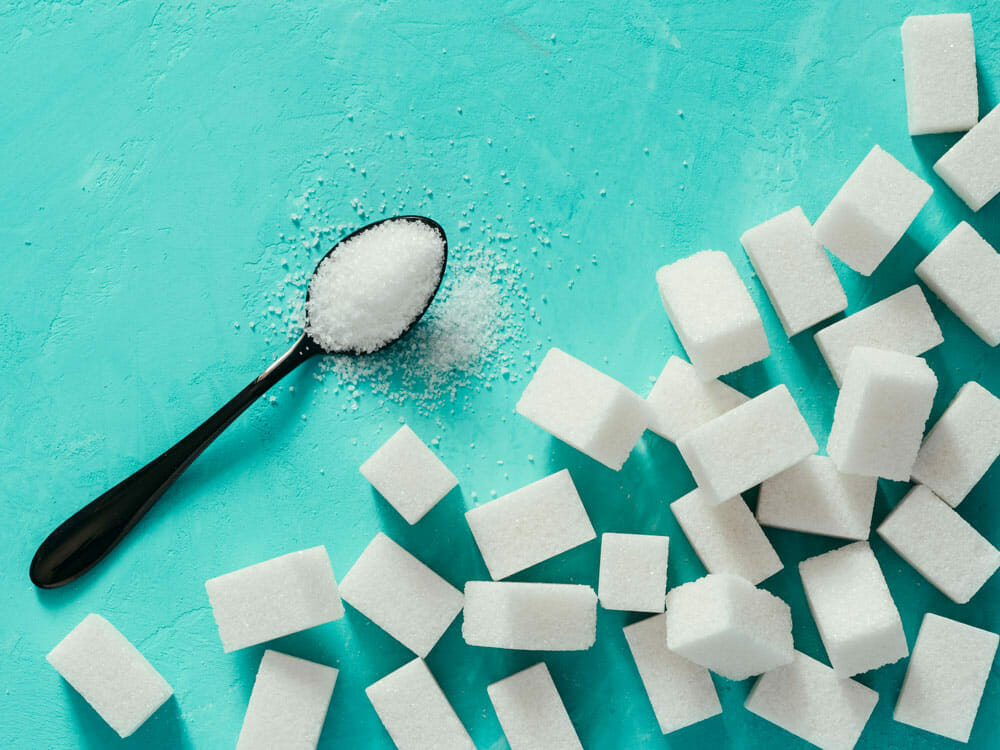It’s a 12 hour shift, and you have a quick moment to yourself. You need a snack, so you reach for some cookies…or a granola bar, or some juice. It’s quick and convenient. Seems innocent enough, right?
But, we know sugar isn’t the healthy option. How does it impact you? Does sugar cause brain fog? What are the top effects of sugar?
Making healthy choices is becoming harder and harder. Sugary foods are in abundance all around us, and they give us the quick energy we crave.
However, the sugar we consume on a daily basis takes a toll on our physical and mental health over time. Worse yet, sugar increases sugar cravings, leading to a cycle of poor choices that can be hard to break. This just ends up increasing your overall sugar intake.
When you take a bite of chocolate cake or sip a caramel mocha, your brain releases dopamine, a feel-good hormone that is highly motivational and reward-driven.
A diet high in sugar will overstimulate these reward pathways and lead to a loss of control to sugar, as well as an increased tolerance.
Unlike healthy foods, dopamine is released every time you eat sugar, which is why it feels so good every time you eat a candy bar. These raised dopamine levels make it easy to reach back into bags of sugary sweets.
Learning and Memory – Sugar Brain Fog
IN THIS ARTICLE
Are you wondering does sugar cause brain fog?
Many people recognize that sugar is bad for our heart health and contributes to weight gain. Did you know that high sugar consumption hinders learning and memory-building, too?
It increases the resistance of insulin, a hormone that strengthens synaptic connections. It can also affect Brain-Derived Neurotropic Factor (BDNF), which promotes the formation of new synaptic connections and is vital for learning and memory.
Unfortunately, sugar and brain fog have a deep connection.
Depression and Anxiety
Your sweet tooth may also affect your mental health, leading to depression and anxiety.
After you eat a sugary snack, your blood sugar levels spike and you may experience irritability or brain fog. When your blood sugar levels crash, you may feel anxious, tired, and moody.
It is important to be mindful of your blood glucose levels.
Cognitive Health
Heavy usage can impact your long-term cognitive health and brain function.
By creating insulin resistance and altering blood sugar levels, sugar can increase the risk for neurodegenerative disorders such as Alzheimer’s disease. Low levels of BDNF has also been correlated with cognitive health disorders.
Sugar works by stimulating serotonin in the brain, and overstimulation can deplete stores of the neurotransmitter, leading to depression.
Those who cut out sugar from a sugar-rich diet may experience withdrawal symptoms such as headaches, anxiety, and even chills. This may greatly impact your cognitive function.

Keep an Eye Out for These Foods/Drinks
Sugary drinks. It’s much easier—and faster—to mindlessly sip calories. Beverages such as coffee with syrup and soda contain a lot of sugar. Drinks that are branded as seemingly “healthy”, such as smoothies, juices, and sports drinks, are also sky-high in sugar. Although the juices may contain less processed ingredients, no drink can compare to water. If you really need something flavored, opt for sugar-free drinks such as La Croix. If you need a caffeine fix, opt for black coffee with a dash of cream.
Granola bars. It’s easy to get caught up in names like “Nature Valley”, but some granola bars have as much sugar as a candy bar. They are made up of granola and fruits; when you break it down, they are made of carbs and sugar. Instead, try a handful of nuts, or make your own trail mix by visiting stores that sell bulk food in bins.
Savory snacks. Don’t forget that all types of carbohydrates are broken down into glucose, which is another name for sugar. Eating too many carbs can spike sugar levels; especially if they are simple, refined, or processed carbs, like white bread or chips.
It can be confusing navigating the maze of healthy and unhealthy foods. You may have been taught that foods like granola bars, sports drinks, and yogurts are healthy.
In reality, they are not the healthiest choices for you and they won’t give you the sustained energy you need.
If you’re unsure about a specific product, check the label. Focus on the grams of sugar and carbohydrates in an item, and read the ingredients list. If sugar is one of the first three ingredients, it’s safe to say that item is not your best choice.
Don’t forget that sugar goes by many names, including dextrose, fructose, glucose, lactose, maltose, sucrose, and starch.
If you really must satisfy a sweet craving, try foods that are minimally processed. Fruit is a better alternative, or a small bar of dark chocolate—both of which contain antioxidants.
Or, eat whole grain carbs such as beans (hummus dip), fruit or vegetables. These “good carbs” are digested more slowly by the body. They consist of longer chains of carbohydrates and are higher in fiber, so they won’t cause spikes in your blood sugar.
Change is hard; it can be difficult to unlearn certain habits or behaviors.
Take it one day at a time, and try your best. Don’t be discouraged if you eat something sugary, or let it derail you. Simply keep on trying.
Having great brain health is important and you’ll notice the difference after you limit sweet foods. The increased energy and mental clarity you’ll notice after a few days will be incentive enough!
Resources
https://www.huffingtonpost.com/2015/04/06/sugar-brain-mental-health_n_6904778.html
https://draxe.com/what-sugar-does-to-your-brain/
https://www.ted.com/talks/nicole_avena_how_sugar_affects_the_brain/transcript#t-21825





